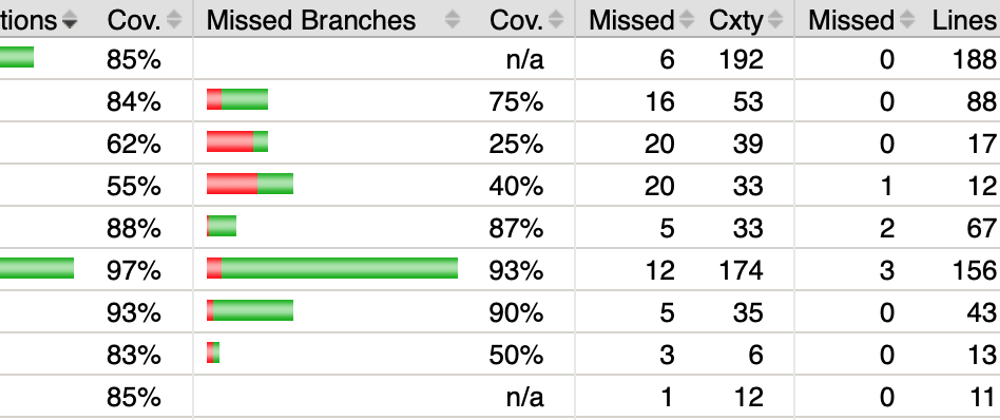When using Gradle's multi-project builds, test and coverage reports are generated separately in each build directory of every sub-project.
To make Azure Pipelines happy I needed to generate an index file for all coverage-reports:
// build.gradle.kts
plugins {
base
kotlin("jvm") version "1.3.72" apply false
}
allprojects {
group = "com.kaffeinelabs"
version = "1.0.0-SNAPSHOT"
apply(plugin = "jacoco")
}
tasks.register<JacocoReport>("jacocoRootReport") {
subprojects {
this@subprojects.plugins.withType<JacocoPlugin>().configureEach {
this@subprojects.tasks.matching {
it.extensions.findByType<JacocoTaskExtension>() != null }
.configureEach {
sourceSets(this@subprojects.the<SourceSetContainer>().named("main").get())
executionData(this)
}
}
}
reports {
xml.isEnabled = true
html.isEnabled = true
}
}
Jacoco configuration for sub-projects should be done as per usual.
To generate the report the jacocoRootReport task needs to be added to the build:
./gradlew test jacocoRootReport
If you also need to aggregate test reports, I covered it in another article:



















